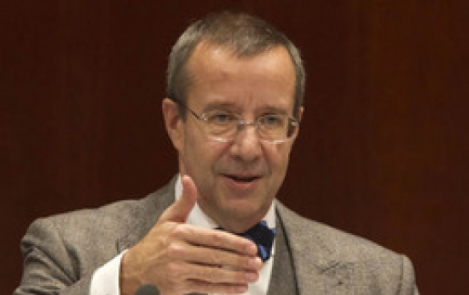-
Reset
+


President Ilves: one man can be a soldier on a battle field, but not in a cyber war
04.02.2011
The President, Mr. Toomas Hendrik Ilves, who today arrived in Munich, Germany, to participate in the on-going, prestigious Munich Security Conference, spoke regarding cyber defence and general cyber security to the representatives of more than twenty countries.
President Ilves said in describing Estonia’s experiences in the sphere of cyber defence and cyber attacks, which were launched against the country in spring 2007, that the organisers of attacks cannot be often identified by, so to say, documentary means, as the computers used are often located outside the country that supported the attack.
“Indirectly, this can be described as a public private partnership,” President Ilves stated.
“As we think about the future military and other conflicts, we must inevitably take cyber issues into consideration and prepare ourselves for situations where the regular means for communicating information – not just national defence systems, but also media and banking – are no longer working,” President Ilves told. “This problem is of little relevance in today’s conflict in Afghanistan; however, it will definitely play an important role in future conflicts.”
He emphasised that Internet attacks may ultimately be dangerous for the attackers themselves, as one day, the respective technologies will become available to the countries attacked. According to the experts, for example, Teheran has acquired the knowledge on how to use the Stuxnet virus to attack the control system of the Iran nuclear programme.
“And who can say that they will not use it against the attackers themselves?” President Ilves asked.
The Estonian Head of State emphasised that credible international co-operation is extremely important in confronting cyber attacks and ensuring cyber security.
“One man can be a soldier in a battle field, but not in a cyber war,” President Ilves said, acknowledging the Cyber Convention of the European Council, which has been acceded by practically all the European Council Member States and many countries from outside, from the United States of America to the Philippines.
According to President Ilves, significant players in the North-European business sector are also inviting countries for international co-operation to ensure cyber security, as they sense the magnitude of the possible threats that cyber attacks pose for the business environment without the close mutual co-operation of governments.
The leaders of the future of more than twenty countries, including the shapers of foreign policies in their respective countries, high ranking civil servants, experts and analysts, have been elected to the audience of the Estonian Head of State.
Tomorrow at the Munich Security Conference, President Ilves will moderate a discussion focusing upon arms control. Mr. Ahmet Davutoglu, the Turkish Minister of Foreign Affairs; Mr. Thomas Donilon, the National Security Advisor in the Obama Administration; Mr. Sergei Ivanov, Deputy Prime Minister of Russia; Mr. Frank-Walter Steinmeier, and the former German Minister of Foreign Affairs, will participate.
Office of the President
Public Relations Department
Phone +372 631 6229




